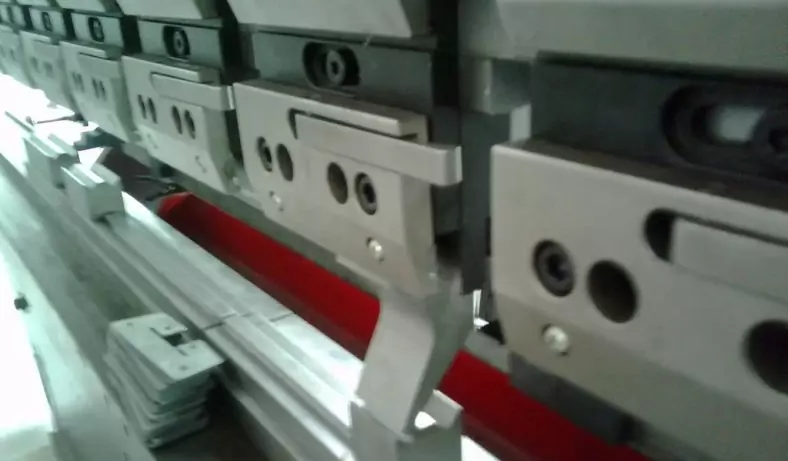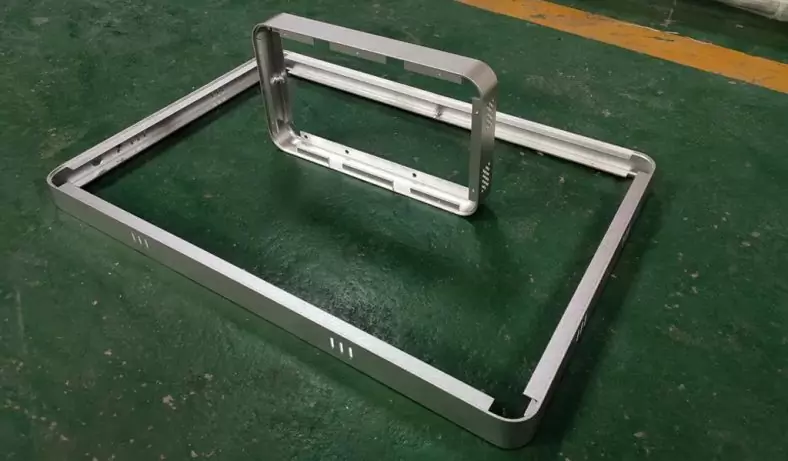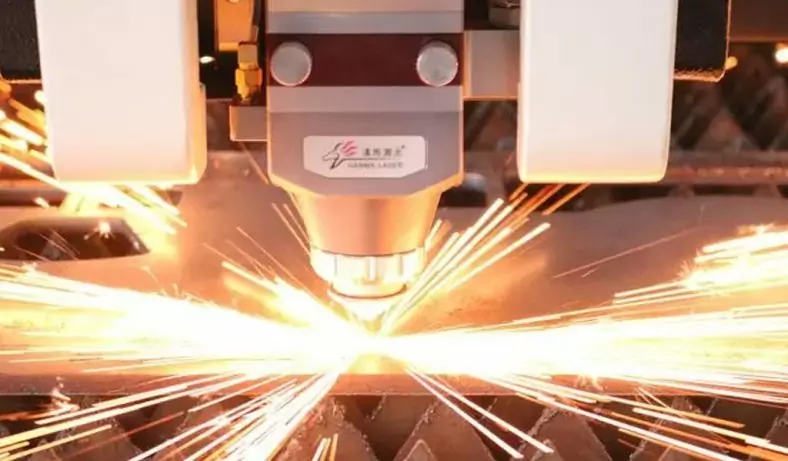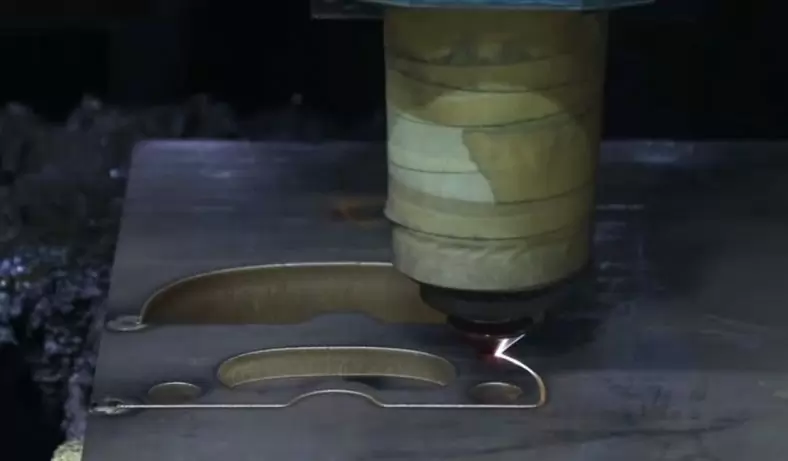Gutters play a pivotal role in the structural integrity and longevity of buildings. Designed to collect and channel rainwater away from a building’s foundation, gutters serve as a vital component in protecting a structure from water damage. Sheet metal gutter fabrication is a specialized process that involves the creation of gutters from various types of sheet metals. It is a crucial aspect of construction and building maintenance, ensuring effective water management and safeguarding the integrity of the entire structure. This article delves into the intricacies of sheet metal gutter fabrication, exploring its process, materials, applications, and the importance it holds in modern construction practices.
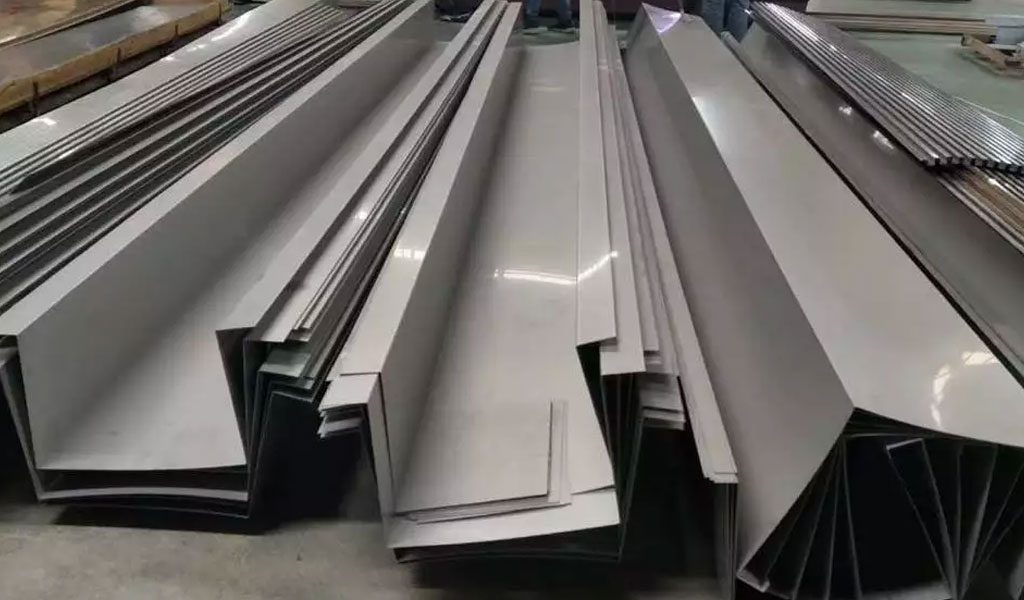
Understanding Rain Gutter Fabrication
Sheet metal gutter(or Rain Gutter) fabrication is the process of forming and manufacturing gutters using various types of sheet metal materials, such as steel, aluminum, copper, and zinc. This fabrication process involves cutting, bending, and shaping the sheet metal to create gutters that effectively manage the flow of rainwater from rooftops. Sheet metal gutters are known for their durability, strength, and weather resistance, making them a popular choice for both residential and commercial buildings.
Be-Cu prototype is a highly qualified licensed sheet metal fabrication shop and rain gutter factory with extensive background in custom and general sheetmetal work.
The Rain Gutter Fabrication Process – How To Sheet Metal Gutter Work
The fabrication of sheet metal gutters typically involves several key steps, each essential in producing high-quality, durable gutters. The process often includes:
- Material Selection: The choice of the sheet metal material depends on various factors, such as the specific requirements of the building, the local climate, and the budget. Common materials used for gutter fabrication include steel, aluminum, copper, and zinc.
- Design and Planning: A well-thought-out design and planning phase are crucial for ensuring that the gutters are tailored to the specific requirements of the building. This stage involves considering the dimensions, style, and placement of the gutters to effectively manage water flow.
- Cutting and Shaping: Once the design is finalized, the selected sheet metal is cut and shaped according to the predetermined specifications. This process involves the use of specialized equipment such as shears, rollers, and presses to achieve precise cuts and shapes.
- Joining and Seaming: Joining the various sections of the gutter is a critical step in ensuring a seamless, leak-free gutter system. Seaming techniques, such as soldering, welding, or crimping, are employed to securely connect the different parts of the gutter.
- Finishing and Coating: To enhance the durability and aesthetics of the gutters, a finishing coat is applied to protect the metal from corrosion and rust. Powder coating, painting, or galvanization are commonly used methods to provide an extra layer of protection against the elements.
- Quality Control and Testing: Before installation, the fabricated gutters undergo rigorous quality control checks and testing to ensure they meet industry standards and specifications. This step is crucial in guaranteeing the functionality and longevity of the gutter system.
Types of Sheet Metal Gutters
Sheet metal gutters come in various types, each with its unique characteristics and advantages. Some of the commonly used sheet metal gutter types include:
- Steel Gutters: Known for their exceptional strength and durability, steel gutters are a popular choice for buildings in areas with extreme weather conditions. They offer excellent resistance to impacts and can withstand heavy loads, making them suitable for both residential and industrial applications.
- Aluminum Gutters: Lightweight and corrosion-resistant, aluminum gutters are widely used in residential construction. They are easy to install and maintain, making them a cost-effective option for homeowners seeking durable and reliable gutter solutions.
- Copper Gutters: Valued for their aesthetic appeal and longevity, copper gutters add a touch of elegance to any building. They develop a natural patina over time, enhancing their visual appeal and providing excellent resistance to corrosion and weathering.
- Zinc Gutters: Zinc gutters are known for their exceptional malleability and corrosion resistance. They are often chosen for their ability to withstand harsh weather conditions and provide long-lasting protection against rust and corrosion.
Each type of sheet metal gutter offers distinct advantages and is chosen based on factors such as budget, climate, and specific aesthetic requirements.
Applications of Sheet Metal Gutters
Sheet metal gutters find a wide range of applications in both residential and commercial sheet metal construction projects. Some of the key applications include:
- Residential Buildings: Sheet metal gutters are extensively used in residential construction to efficiently manage rainwater and prevent damage to the building’s foundation and structure. They are available in various designs and sizes to complement different architectural styles and aesthetics.
- Commercial Complexes: Large commercial buildings often require robust gutter systems to manage significant volumes of rainwater efficiently. Sheet metal gutters provide the durability and strength needed to handle heavy rainfall and ensure the protection of the building’s structural integrity.
- Industrial Structures: Industrial facilities, such as warehouses and manufacturing plants, benefit from the use of sturdy sheet metal gutters that can withstand the demands of heavy-duty applications. These gutters offer reliable water management solutions, minimizing the risk of water-related damage and maintaining a safe working environment.
- Institutional Buildings: Institutions such as schools, hospitals, and government buildings rely on sheet metal gutters to ensure effective water drainage and prevent water-related issues that could compromise the safety and functionality of the premises.
The versatility and durability of sheet metal gutters make them a preferred choice for a wide array of construction projects, contributing to the overall structural integrity and longevity of the buildings.
Benefits of Sheet Metal Gutter Fabrication
Sheet metal gutters are renowned for their exceptional durability and longevity. They are designed to withstand harsh weather conditions, including heavy rain, snow, and high winds. The inherent strength of sheet metal materials ensures that the gutters remain structurally sound, providing long-term protection for buildings.
Customization and Aesthetics
Sheet metal gutter fabrication allows for a high degree of customization, enabling builders and homeowners to choose from a variety of designs, shapes, and finishes. Whether it’s a traditional, contemporary, or custom architectural style, sheet metal gutters can be tailored to complement the overall aesthetics of the building, enhancing its visual appeal and value.
Low Maintenance Requirements
Compared to other gutter materials, sheet metal gutters have relatively low maintenance requirements. They are resistant to rust and corrosion, reducing the need for frequent repairs or replacements. Routine inspections and cleaning are typically sufficient to ensure the optimal performance and longevity of sheet metal gutter systems.
Weather Resistance
Sheet metal gutters are designed to withstand various weather conditions, making them highly resilient in extreme climates. They can effectively manage heavy rain, snowmelt, and ice, preventing water-related issues such as leaks, flooding, and structural damage. Their weather-resistant properties contribute to the overall stability and safety of buildings.
Environmentally Friendly
Many sheet metal materials used for gutter fabrication are recyclable, making them an eco-friendly choice for sustainable construction practices. By opting for sheet metal gutters, builders contribute to reducing the environmental impact of construction projects and promote responsible waste management and resource conservation.
Cost-Effectiveness
While the initial cost of sheet metal gutter fabrication may be higher than that of some other materials, the long-term cost-effectiveness of these gutters is notable. Their durability and low maintenance requirements translate into reduced repair and replacement costs over the life of the building.
Challenges and Considerations
While sheet metal gutters offer numerous benefits, there are some challenges and considerations to keep in mind:
- Initial Cost: The upfront cost of sheet metal gutters can be higher than that of some alternative materials. However, their long-term durability and low maintenance requirements often result in cost savings over time.
- Specialized Installation: Proper installation of sheet metal gutters requires specialized skills and tools. It’s essential to hire experienced professionals to ensure the system’s effectiveness and longevity.
- Expansion and Contraction: Sheet metal materials can expand and contract with temperature fluctuations. To prevent potential issues, expansion joints and proper installation techniques are necessary.
- Aesthetic Changes: While some property owners appreciate the patina that develops on copper gutters, others may not prefer the change in appearance over time. Regular maintenance and cleaning can help mitigate this issue.
- Weight Considerations: Some sheet metal gutters, such as steel, can be heavy. Builders must ensure that the building’s structure can support the weight of the gutters and the collected rainwater.
Conclusion
Sheet metal gutter fabrication is a vital aspect of modern construction and building maintenance. These systems, fabricated from materials like steel, aluminum, copper, and zinc, offer durability, customization, and long-term cost-effectiveness. They effectively manage rainwater and protect buildings from water-related damage. While there are some challenges and considerations, the advantages of sheet metal gutters make them a popular choice for a wide range of construction applications, from residential homes to industrial complexes. As technology and materials continue to advance, sheet metal gutter fabrication remains at the forefront of ensuring the longevity and integrity of buildings in diverse climates and environments.
In an era where sustainable and resilient construction practices are highly valued, sheet metal gutter fabrication stands as a testament to the enduring importance of effective water management in the preservation and longevity of our built environment.

